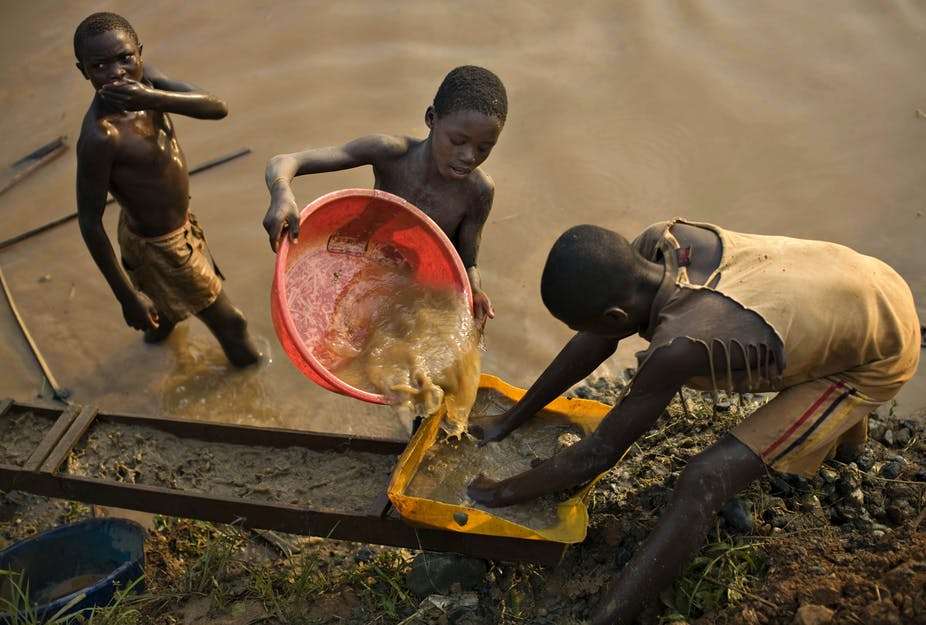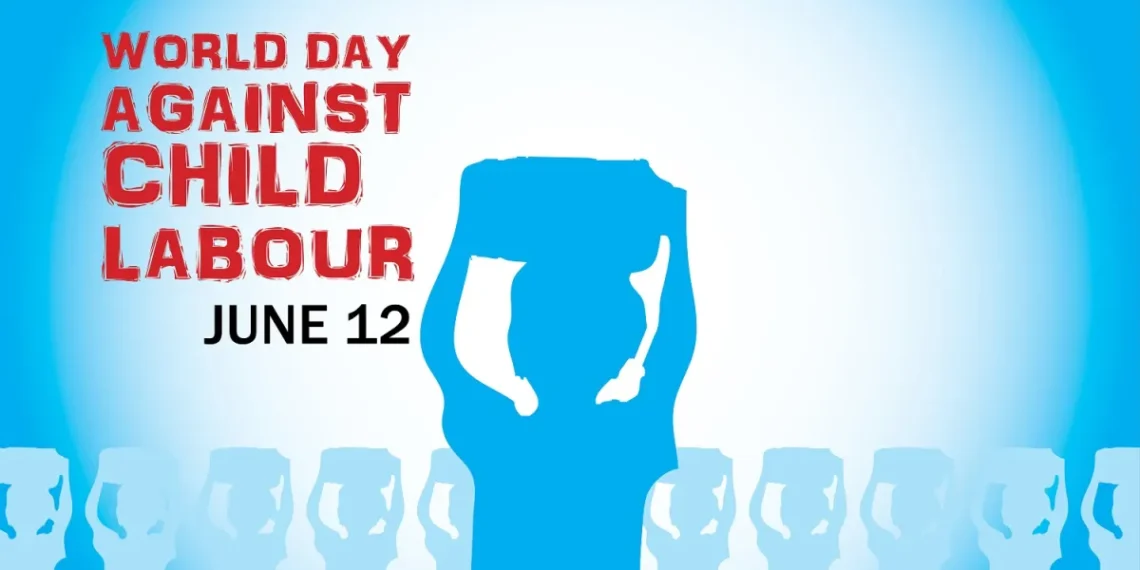Mr. Joseph Whittal, Commissioner of the Commission on Human Rights and Administrative Justice (CHRAJ) has marked this year’s World Day Against Child Labour with a fervent call for intensified efforts from the government and other stakeholders to eradicate child labour in Ghana.
Emphasising the urgency of achieving the United Nations Sustainable Development Goal (SDG) 8.7, Mr. Whittal highlighted the need for immediate and coordinated actions to eliminate child labour in all its forms.
The International Labour Organization (ILO) established the World Day Against Child Labour in 2002 to raise global awareness about the prevalence of child labour and to catalyse actions towards its abolition. The theme for this year’s commemoration, “Let’s Act on Our Commitment: End Child Labour!” underscores the importance of strengthening the implementation of ILO Conventions No. 138 and No. 182. These conventions mandate all member states to eradicate child labour, regardless of whether they have ratified the conventions.
“Child labour remains a pervasive issue worldwide, with Africa bearing a significant burden. Statistics reveal that 19.6% of African children are involved in child labour, translating to approximately 72.1 million children.”
“Together with the Asia Pacific region, these areas account for nearly 90% of the global child labour population. In Ghana, the situation is equally dire. Approximately 28% of children aged 5-17 are engaged in child labour, with around 21% working under hazardous conditions.”
Mr. Joseph Whittal, Commissioner of CHRAJ
Mr. Joseph Whittal highlighted that this troubling trend is exacerbated by high rates of school dropouts, with over one million primary and secondary school-aged children currently out of school. Additionally, he noted that 33% of young women and 28% of young men are neither in education, employment, or training. Children in Ghana often work in fishing, cocoa production, and mining sectors, exposing them to severe risks and limiting their future opportunities.
Despite these challenges, Ghana has made significant strides in addressing child labour. The country has enacted legislation and ratified international conventions, including the Children’s Act of 1998 (Act 560), the UN Convention on the Rights of the Child, and the UN Guiding Principles on Business and Human Rights (UNGPs).
Mr. Joseph Whittal stated, “In 2023, Ghana launched the Ghana Accelerated Action Plan Against Child Labour 2023-2027, a comprehensive five-year plan aimed at addressing the root causes of child labour.”
The action plan underscores the importance of multi-sectoral and multi-stakeholder collaboration, emphasizing the need to strengthen social protection systems, improve access to quality education, enhance livelihood opportunities for families, and promote decent employment for the youth. The plan also incorporates lessons learned from previous initiatives and aims to achieve SDG 8.7 by 2025.
Ongoing Challenges and the Need for Intensified Efforts

However, despite these efforts, significant challenges remain. Extreme poverty, entrenched social norms, poorly enforced regulatory policies, and insufficient resource allocation continue to hinder progress. Whittal acknowledged these barriers and stressed the need for enhanced efforts to combat child labour.
CHRAJ recognised various initiatives aimed at addressing child labour, including child labour monitoring systems, the Integrated Social Services, and the Social Welfare Information Management System.
Mr. Joseph Whittal emphasised, “These initiatives aim to improve coordination between social protection, child protection, and health service providers.” Nevertheless, He urged, “The government and stakeholders must strengthen inter-sectoral coordination, implement targeted community sensitization programs, and enhance access to quality education.”
To achieve the ambitious goal of eradicating child labour, Mr. Whittal emphasized the necessity of adequate budget allocations to finance social service initiatives, particularly at the decentralized level. He also called for the harmonization of Child Labour Monitoring and Remediation Systems to ensure effective outcomes.
Mr. Whittal’s call to action on World Day Against Child Labour is a stark reminder of the ongoing struggle to protect Ghana’s children from exploitation. His appeal for accelerated and coordinated efforts underscores the urgency of addressing the systemic issues that perpetuate child labour. As Ghana strives towards achieving SDG 8.7, the collective commitment and concerted actions of the government, stakeholders, and society at large are crucial in ensuring a future where every child can enjoy their right to a safe and dignified childhood.
The World Day Against Child Labour serves as a critical juncture to reflect on the progress made and the challenges ahead. With the continued dedication and collaboration of all stakeholders, Ghana can move closer to eradicating child labour and securing a better future for its children. Whittal’s impassioned call highlights the importance of not just recognizing the issue but acting decisively to end it.
READ ALSO: RSF Attacks Hospital In Darfur




















